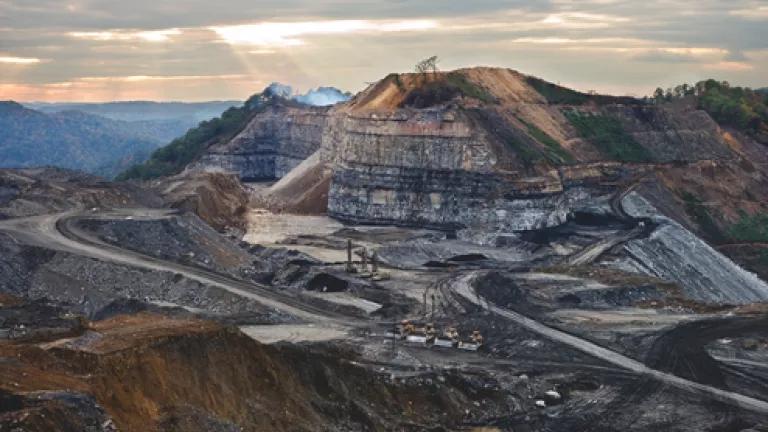
I took my son to see the blockbuster James Cameron-directed movie 'Avatar' and within minutes it became clear to me that I'd seen this story before. Afterwards, I updated my Facebook status to: Unobtainium = Coal.
That's because the plot of the movie essentially mirrors the tragedy that is unfolding in Appalachia today. In the film, a rapacious mining company invades the lush, biodiverse planet of Pandora to extract a mysterious black energy rock they call "unobtainium." The company, backed by a powerful army, will stop at nothing to get this resource -- and the planet's residents pay the price in terms of rampant destruction of their homeland.
You could say the same about the folks in Appalachia, who now suffer the consequences of the world's worst coal mining: mountaintop removal.
(Photo by J Henry Fair)
Clearly, I'm not the only person who has made the connection between this work of cinematic fiction and Appalachia's real-world nightmare. Journalist John McQuaid draws the parallels quite well in his blog. He writes:
Take a look at a real-world situation that tracks Avatar’s concerns rather closely: mountaintop removal coal mining. This week, a group of scientists published a paper in Science outlining the extensive damage that this form of mining – in the U.S., practiced mainly in Central Appalachia – does to the environment, particularly mountain streams that are obliterated by so-called “valley fills.” They also take a step into the policy arena, arguing that the federal government should ban MTR outright.
I’ve interviewed many of these scientists in the course of writing several pieces about MTR. I’ve visited mining sites, talked with people who live around them. The scale of destruction is astonishing. (There is, coincidentally or not, a cutaway scene at the start of Avatar that looks like an MTR site.)
The attitude of the coal industry isn’t far removed from that of the unobtanium-extraction operation on Pandora: We need to get that coal. You need us to get that coal to keep your electricity flowing. We have the technology to do it and employ thousands. Stop whining about nature and let us do our jobs. (In Appalachia’s business community, where coal has long ruled the roost, there are few of the formal niceties about respecting the environment and accommodating local “stakeholders” that you hear from corporate types in DC or elsewhere.)
Avatar is set on an alien moon, so there are (apparently) no government checks on corporate activity. In Appalachia, there’s a breakdown of basic government responsibility. The radical practice of decapitating mountains isn’t even specifically addressed in the weak and erratically-enforced patchwork of laws and regulations that govern “surface mining.” There are crazy overlapping jurisdictions between agencies including the EPA, the Interior Department and the U.S. Army Corps of Engineers.
That’s why this week’s scientific report is important. It’s an attempt to assemble the scientific knowledge that has emerged over the past decade about the effects of MTR – with the hope of cutting through the huge amount of bureaucratic and political BS around this issue. Among other things, the participating scientists outline the rich complexity of mountain ecosystems, particularly streams in forested high mountain valleys. Destroy them and the effects are felt for miles around, and far downstream. As with Avatar’s clever biosphere “nervous system” idea, these ecosystems are complex and intertwined, having evolved over millions of years. Obliterate them and they’re gone forever.
McQuaid is referring to the action this past week, in which EPA re-opened Pandora's Box by deciding to allow the desacration of America's oldest mountains -- and the communities that depend on them -- to continue. A few days later, an eminent group of scientists issued a comprehensive new study critical of the practice -- the damage so "pervasive and irreversible" to the Appalachian ecosystem that they took the bold step of calling for regulators to stop the madness by banning mountaintop mining.
We can only hope that Appalachia's story will enjoy a Hollywood ending as satisfying and soul-saving as the movie 'Avatar."
